Blog > What are the benefits of 's?
What are the 8 benefits of 's?
Are you thinking of upgrading your driveway since it is showing signs that it needs to be replaced? Or are you looking for an option that will improve your home’s curb appeal? Concrete driveways are durable enough to stand up to whatever vehicle you have in your garage.
You can also customize them with unique designs, vibrant colors, and textures to create a nice-looking driveway.
Beauty, strength, and longevity make concrete a relatively good value for driveways and other exterior surfaces.
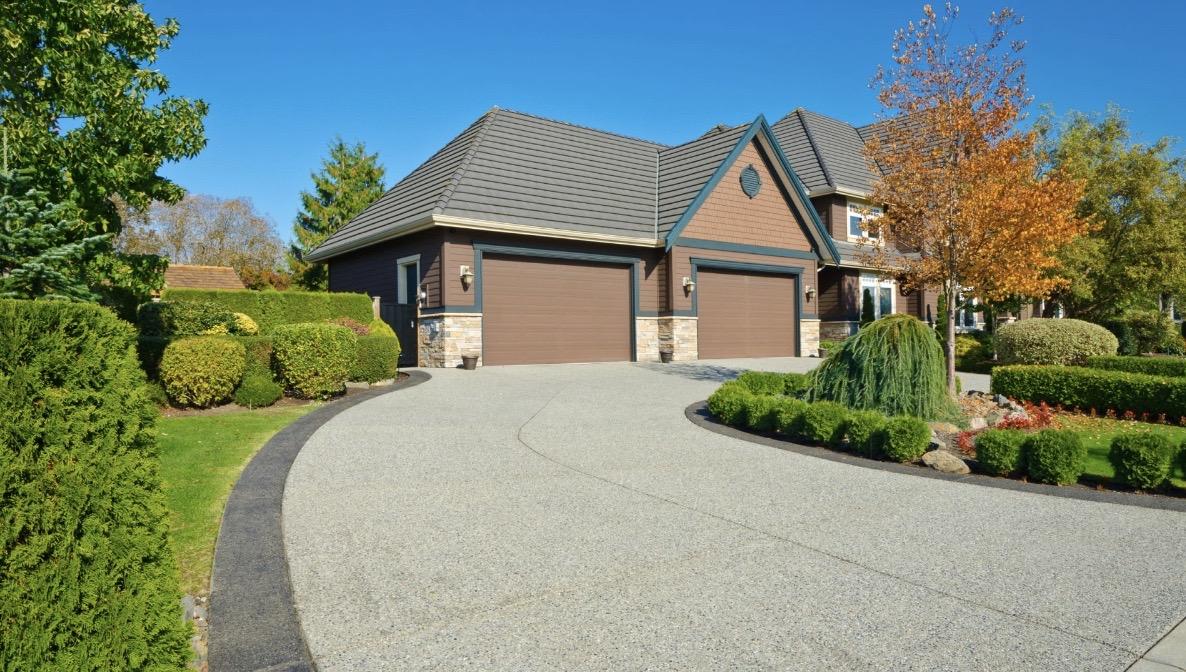
8 Benefits of 's
Concrete has many advantages compared to other construction materials. Here are nine benefits of concrete driveways you should know about when thinking of replacing your current driveway.
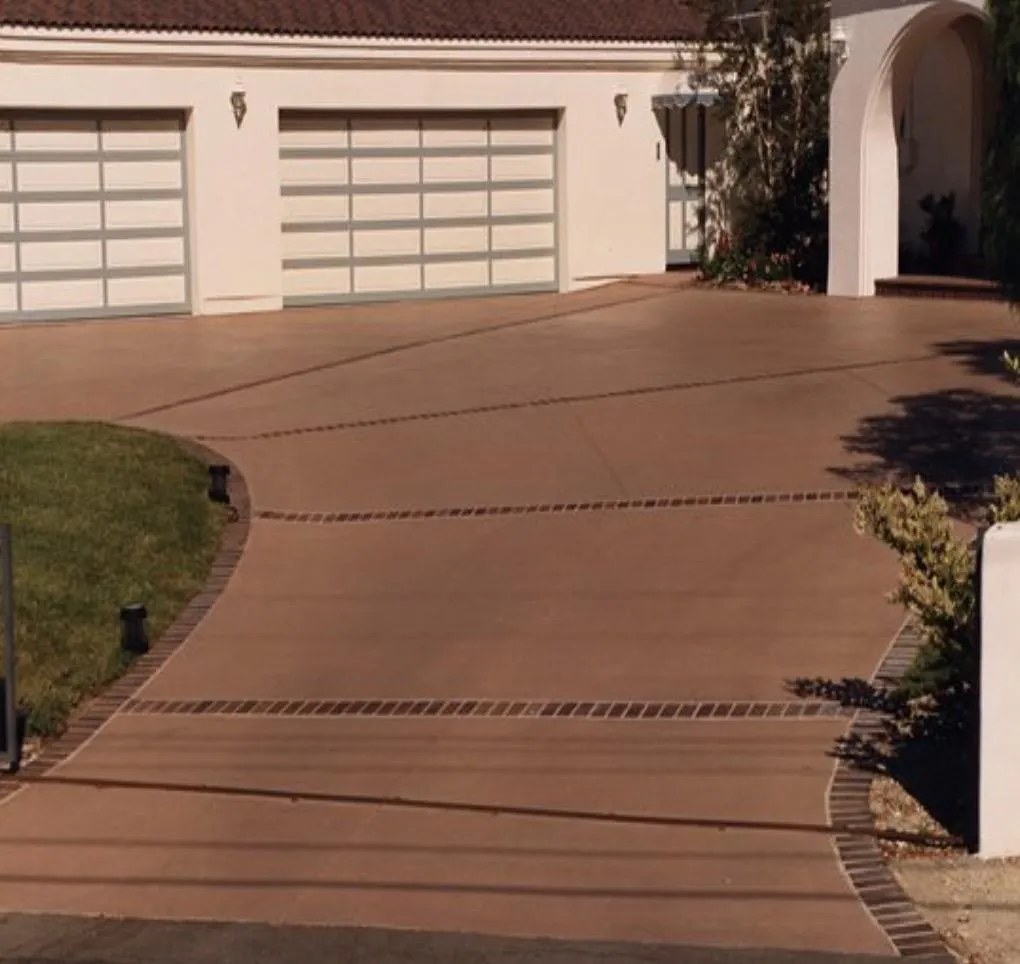
1. LONG-LASTING
One of the benefits of an asphalt driveway is its lower upfront cost. Low cost might be the reason why many homeowners would want asphalt for their driveways. However, an asphalt driveway’s higher maintenance cost can offset this benefit. You see, the liquid binder in asphalt holds the aggregates together. But this binder element is prone to cracking, distortion, and disintegration due to its exposure to oxygen, UV rays, water, and chemicals. Concrete installation for a driveway surface can cost more than installing with gravel or asphalt. However, a concrete surface can outlast driveway surfaces installed with gravel, asphalt, or other construction materials.
2. EASY TO MAINTAIN
While many homeowners perceive concrete driveways as being maintenance-free, it does help to keep your driveway cleaned and sealed to ensure its longevity. Cleaning involves using a hose, pressurized water, and a stiff-bristled brush. Likewise, using a concrete sealer can add that extra layer of protection to your concrete surface. It only takes once a year to apply a concrete sealer to your driveway surface.
Applying a clear concrete sealer to your driveway surface prevents water or moisture absorption. It also protects surfaces from the de-icing chemicals that can cause damage to the concrete. To prepare for the winter months, it is always a good practice to seal your driveway in the fall. This will ensure that the concrete surface will stand up to the harsh winter weather and to the road salts.
3. BETTER REACTION TO HEAT AND LIGHT
While asphalt driveways absorb more heat and can be advantageous in the winter, having a hotter driveway in the summer negates this advantage. Also, the asphalt’s black or grey color helps it absorb more heat and light. Therefore, an asphalt driveway surface may require more artificial lighting than a concrete surface. On the other hand, a concrete surface absorbs less heat from the sun and so it is much cooler compared to an asphalt surface. Likewise, since a concrete driveway reflects light, this reduces the need for more lighting. As a result, a concrete driveway contributes to your home’s energy savings for years to come.
What else to know about 's?
4. BETTER LOAD-BEARING CAPACITY
A concrete driveway can handle heavy loads better than asphalt since it is a non-flexible material. While your driveway is only intended for your vehicles to travel on, you can never know when there will be a heavier vehicle on your property or garage. Trucks and heavy loads on an asphalt surface can cause flexing, which may deform the pavement layers. Weak asphalt mixtures, insufficient pavement thickness, and lack of compression are some of the reasons why asphalt surfaces deform easily under heavy loads.
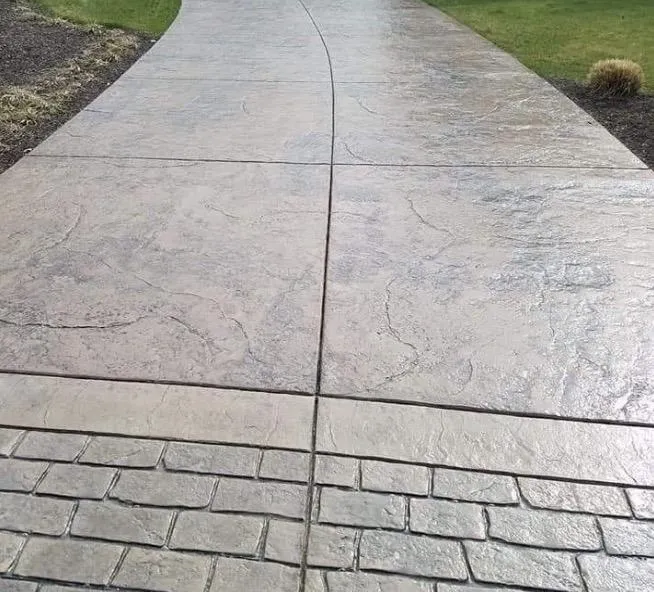
5. NO MESSY SURFACE ISSUES
Another thing to worry about asphalt driveways is the evaporative oils that come out after the installation. The oils can penetrate and damage the soles of your shoes. The sticky, oily materials can get in your house through your shoes. This is something you don’t want to happen as cleaning could involve tedious and difficult work. Furthermore, the hot temperature in the summer can only make things worse. With a concrete surface on your driveway, your home is not subject to such a predicament. Once the concrete dries, there will be no oily, sticky materials to worry about.
6. ENVIRONMENTALLY FRIENDLY
A hot mix asphalt requires 200-250 degrees Fahrenheit of heat, which consumes a great deal of energy. Also, the seal coating on asphalt driveways consumes more petroleum products that further contribute to the depletion of Earth’s natural resources. Contrarily, concrete is the more environmentally friendly paving solution since less overall energy is required to produce and install it. Moreover, the energy cost of installing concrete on a driveway is lower compared to its asphalt counterpart. Concrete can also be salvaged after the end of the 30- or 50-year period. It can be recycled to produce new driveways along the line since it consists of renewable materials such as cement, sand, rock, and water.
More to Know About
7. HIGHLY CUSTOMIZABLE
Today’s concrete driveways are no longer limited to the grey and flat finish that most people think. You can customize your concrete driveway with unique designs and vibrant colors. In terms of texture, stamped concrete can copy the same aesthetic of luxurious looking brick or cobblestone driveways. Stamped concrete can make your driveway look as if it was made with the most expensive materials. You can consult your local concrete contractor to know more about decorative concrete. Most of them have a gallery of design templates that you can choose from if you want an attractive driveway that helps boost your property’s curb appeal.

8. HELP SELL YOUR PROPERTY FASTER
Are you thinking of putting your property on the market in the future? You should take note that the majority of prospective buyers prefer homes with concrete driveways. As a result, some homebuyers would be willing to pay more.
Homes with concrete driveways sell faster than those with driveways made with other construction materials. There is also a higher chance that you’ll regain a portion of your investments down the road.
Contact Us
Service Hours
Social Media
Blog > What is ?
What are the 8 benefits of 's?
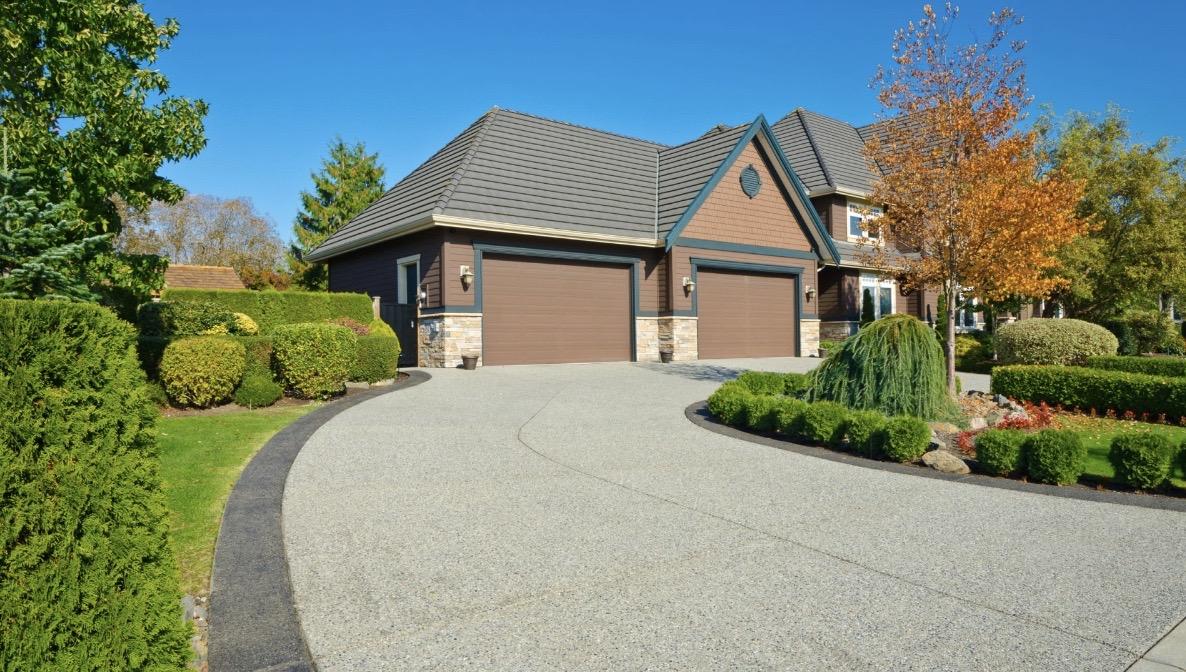
Are you thinking of upgrading your driveway since it is showing signs that it needs to be replaced? Or are you looking for an option that will improve your home’s curb appeal? Concrete driveways are durable enough to stand up to whatever vehicle you have in your garage.
You can also customize them with unique designs, vibrant colors, and textures to create a nice-looking driveway.
Beauty, strength, and longevity make concrete a relatively good value for driveways and other exterior surfaces.
8 Benefits of 's
Concrete has many advantages compared to other construction materials. Here are nine benefits of concrete driveways you should know about when thinking of replacing your current driveway.
1. LONG-LASTING
One of the benefits of an asphalt driveway is its lower upfront cost. Low cost might be the reason why many homeowners would want asphalt for their driveways. However, an asphalt driveway’s higher maintenance cost can offset this benefit. You see, the liquid binder in asphalt holds the aggregates together. But this binder element is prone to cracking, distortion, and disintegration due to its exposure to oxygen, UV rays, water, and chemicals. Concrete installation for a driveway surface can cost more than installing with gravel or asphalt. However, a concrete surface can outlast driveway surfaces installed with gravel, asphalt, or other construction materials.

2. EASY TO MAINTAIN
While many homeowners perceive concrete driveways as being maintenance-free, it does help to keep your driveway cleaned and sealed to ensure its longevity. Cleaning involves using a hose, pressurized water, and a stiff-bristled brush. Likewise, using a concrete sealer can add that extra layer of protection to your concrete surface. It only takes once a year to apply a concrete sealer to your driveway surface.
Applying a clear concrete sealer to your driveway surface prevents water or moisture absorption. It also protects surfaces from the de-icing chemicals that can cause damage to the concrete. To prepare for the winter months, it is always a good practice to seal your driveway in the fall. This will ensure that the concrete surface will stand up to the harsh winter weather and to the road salts.
3. BETTER REACTION TO HEAT AND LIGHT
While asphalt driveways absorb more heat and can be advantageous in the winter, having a hotter driveway in the summer negates this advantage. Also, the asphalt’s black or grey color helps it absorb more heat and light. Therefore, an asphalt driveway surface may require more artificial lighting than a concrete surface. On the other hand, a concrete surface absorbs less heat from the sun and so it is much cooler compared to an asphalt surface. Likewise, since a concrete driveway reflects light, this reduces the need for more lighting. As a result, a concrete driveway contributes to your home’s energy savings for years to come.
What else to know about 's?
4. BETTER LOAD-BEARING CAPACITY
A concrete driveway can handle heavy loads better than asphalt since it is a non-flexible material. While your driveway is only intended for your vehicles to travel on, you can never know when there will be a heavier vehicle on your property or garage. Trucks and heavy loads on an asphalt surface can cause flexing, which may deform the pavement layers. Weak asphalt mixtures, insufficient pavement thickness, and lack of compression are some of the reasons why asphalt surfaces deform easily under heavy loads.
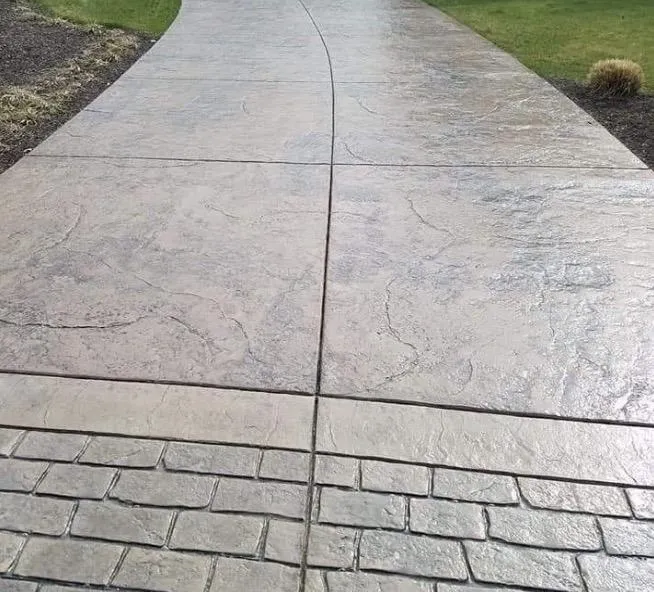
5. NO MESSY SURFACE ISSUES
Another thing to worry about asphalt driveways is the evaporative oils that come out after the installation. The oils can penetrate and damage the soles of your shoes. The sticky, oily materials can get in your house through your shoes. This is something you don’t want to happen as cleaning could involve tedious and difficult work. Furthermore, the hot temperature in the summer can only make things worse. With a concrete surface on your driveway, your home is not subject to such a predicament. Once the concrete dries, there will be no oily, sticky materials to worry about.
6. ENVIRONMENTALLY FRIENDLY
A hot mix asphalt requires 200-250 degrees Fahrenheit of heat, which consumes a great deal of energy. Also, the seal coating on asphalt driveways consumes more petroleum products that further contribute to the depletion of Earth’s natural resources. Contrarily, concrete is the more environmentally friendly paving solution since less overall energy is required to produce and install it. Moreover, the energy cost of installing concrete on a driveway is lower compared to its asphalt counterpart. Concrete can also be salvaged after the end of the 30- or 50-year period. It can be recycled to produce new driveways along the line since it consists of renewable materials such as cement, sand, rock, and water.
More to Know About
7. HIGHLY CUSTOMIZABLE
Today’s concrete driveways are no longer limited to the grey and flat finish that most people think. You can customize your concrete driveway with unique designs and vibrant colors. In terms of texture, stamped concrete can copy the same aesthetic of luxurious looking brick or cobblestone driveways. Stamped concrete can make your driveway look as if it was made with the most expensive materials. You can consult your local concrete contractor to know more about decorative concrete. Most of them have a gallery of design templates that you can choose from if you want an attractive driveway that helps boost your property’s curb appeal.

8. HELP SELL YOUR PROPERTY FASTER
Are you thinking of putting your property on the market in the future? You should take note that the majority of prospective buyers prefer homes with concrete driveways. As a result, some homebuyers would be willing to pay more.
Homes with concrete driveways sell faster than those with driveways made with other construction materials. There is also a higher chance that you’ll regain a portion of your investments down the road.
Contact Us
760-512-8091
16790 Danbury ave
Hesperia, CA, 92345
Service Hours
Mon-Fri: 8am-5pm
Sat-Sun: 8am-5pm
Social Media






